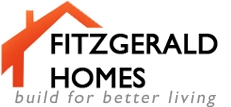Stamp Duty
1. What is Stamp Duty?
Stamp duty is the tax payable to the government for changing the documents that specify who owns a particular property.
2. How much Stamp Duty will I have to pay?
Depending on your status as a buyer and the type of property you are purchasing, stamp duty can form a considerable expense. The amount of stamp duty applicable to your purchase depends on several key factors:
|
Status as a buyer:
|
First time buyer, Owner-occupier or Investor
|
|
Property Type:
|
Second-hand or New home
|
|
Floor Area:
|
The size of the property
|
3. What is my status as a buyer?
- First time buyers:
A first time buyer is a person who has not previously purchased or built a house or apartment anywhere in the world and who is purchasing the property for use as their main residence and not buying the property in order to rent it out as an investor. - Owner-occupiers:
An owner occupier is a person who purchases an apartment or house for use as their principal residence. - Investor:
A person buying a property as investment, examples include a second home, or purchasing a property in order to let it out.
4. What type of home are you buying – how much Stamp Duty applies to you?
New Homes
First-time buyers do not have to pay any stamp duty on new homes.
For Owner occupiers the following rules apply:
– On a property where the floor area is less than 125 sq. metres – No stamp duty
– On a property where the floor area is greater than 125 sq. metres, stamp duty is payable at the following rates, but is based on the greater of either the site value or 25% of the VAT exclusive purchase price:
|
Property Value
|
Rate
|
|
Up to €125,000
|
Exempt
|
|
Next €875,000
|
7%
|
|
Balance
|
9%
|
Investors also pay stamp duty on new homes according to the above table
Second hand homes
First-time buyers do not have to pay any stamp duty on second hand homes.
Owner occupiers and Investors pay stamp duty at the following rates:
|
Property Value
|
Rate
|
|
Up to €125,000
|
Exempt
|
|
Next €875,000
|
7%
|
|
Balance
|
9%
|
5. When is Stamp Duty payable?
When closing the sale, your solicitor will calculate the exact stamp duty due and you will be required to pay this amount to the Revenue Commissioners. Your solicitor will usually arrange this payment.
6. Clawback of Stamp Duty
The exemption from stamp duty for first-time house buyers and buyers of certain new homes is currently clawed back if the purchaser rents out the home within 5 years of date of purchase. This clawback period is being reduced to 2 years for all deeds of transfer executed on or after 5 January 2007.
For deeds of transfer executed before 5 December 2007, if that house or apartment is rented out on or after 5 December 2007, it will not involve a claw-back of relief where this happens in the third, fourth or fifth year of ownership.
For further information about stamp duty including exemptions and full explanations of all rules please consult http://www.citizensinformation.ie/ and the Revenue Commissioners website www.revenue.ie
